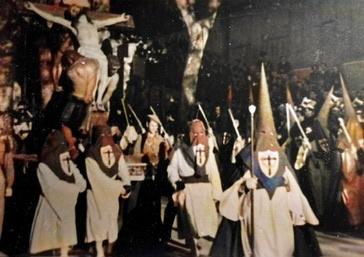How did the Christian reconquest impact the agricultural landscape of Mallorca?
Similar Topics
christian reconquest
mallorca
agricultural landscape
king james i
muslim rule
advanced irrigation
crop diversification
land ownership
feudal systems
culinary richness
The Christian reconquest of Mallorca, which culminated in 1229 when King James I of Aragon captured the island from Muslim rule, had a profound impact on the agricultural landscape of the region. Under Muslim domination, Mallorca had developed a sophisticated agricultural system that included advanced irrigation techniques, crop diversification, and the cultivation of crops such as citrus fruits, olives, and almonds. The reconquest led to the introduction of new agricultural practices and crops brought by the Christian settlers, particularly from Catalonia and Aragon.
In the wake of the reconquest, many Muslim inhabitants were either expelled or converted, resulting in significant shifts in land ownership. Christians began to establish feudal systems of land management, which often prioritized cereal crops and livestock over the more intensive horticulture promoted under Muslim rule. This transition often led to a decline in the variety of produce and a shift towards larger, less intensive farming operations. Additionally, the newly introduced crops reflected the tastes and demands of the Christian settlers, altering the island's agricultural identity.
Over time, however, the agricultural practices evolved to blend both Muslim and Christian influences, ultimately enriching Mallorca's agricultural heritage. The reconquest permanently changed land use patterns, but it also set the stage for future agricultural development that would eventually lead to Mallorca's reputation for culinary richness. As a result, the agricultural landscape of Mallorca became a tapestry reflecting both its Islamic past and Christian influences, with enduring implications for its economy and local food culture.
In the wake of the reconquest, many Muslim inhabitants were either expelled or converted, resulting in significant shifts in land ownership. Christians began to establish feudal systems of land management, which often prioritized cereal crops and livestock over the more intensive horticulture promoted under Muslim rule. This transition often led to a decline in the variety of produce and a shift towards larger, less intensive farming operations. Additionally, the newly introduced crops reflected the tastes and demands of the Christian settlers, altering the island's agricultural identity.
Over time, however, the agricultural practices evolved to blend both Muslim and Christian influences, ultimately enriching Mallorca's agricultural heritage. The reconquest permanently changed land use patterns, but it also set the stage for future agricultural development that would eventually lead to Mallorca's reputation for culinary richness. As a result, the agricultural landscape of Mallorca became a tapestry reflecting both its Islamic past and Christian influences, with enduring implications for its economy and local food culture.
🧩 Related Questions
Related Question
What role does the preservation of Loryc automobiles play in maintaining Mallorcan cultural heritage for travelers today?
Related Question
Can visitors participate in almond harvesting or culinary tours centered around almonds in Mallorca?
Related Question
In what ways has tourism influenced the evolution of Mallorcan textile designs?
